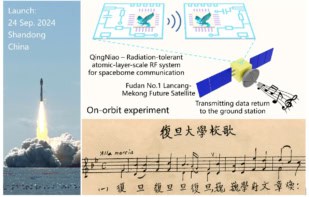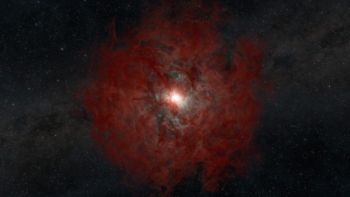Radio astronomers who use the Arecibo radio telescope in Puerto Rico have signed a deal with Motorola that will silence the company's Iridium satellites for eight hours a day above the telescope. The memorandum of understanding has been signed by Motorola and the National Astronomy and Ionosphere Center.
Interference from satellites is an increasing problem for radio astronomers, and this problem is set to get worse as hundreds of telecommunications satellites are launched into low-Earth orbit over the next few years. Signals from the satellites – mostly for mobile phones – interfere with the radio signals from outer space that the astronomers are trying to detect. The latest agreement addresses interference at 1612 Megahertz, the frequency at which hydroxyl, one of most common interstellar molecules, emits radiation.
“This agreement is a good compromise in protecting astronomers’ ability to observe at this frequency, ” said Paul Goldsmith, NAIC director. “Some radio astronomers may have felt that they were entitled to 24 hours a day, but I’m happy that both sides could agree to eight. The agreement should help radio astronomy and communications’ use of the spectrum to coexist productively.”
As well as guaranteeing radio astronomers eight hours free from satellite interference per day, the agreement allows for extra time if special scientific opportunities arise.



